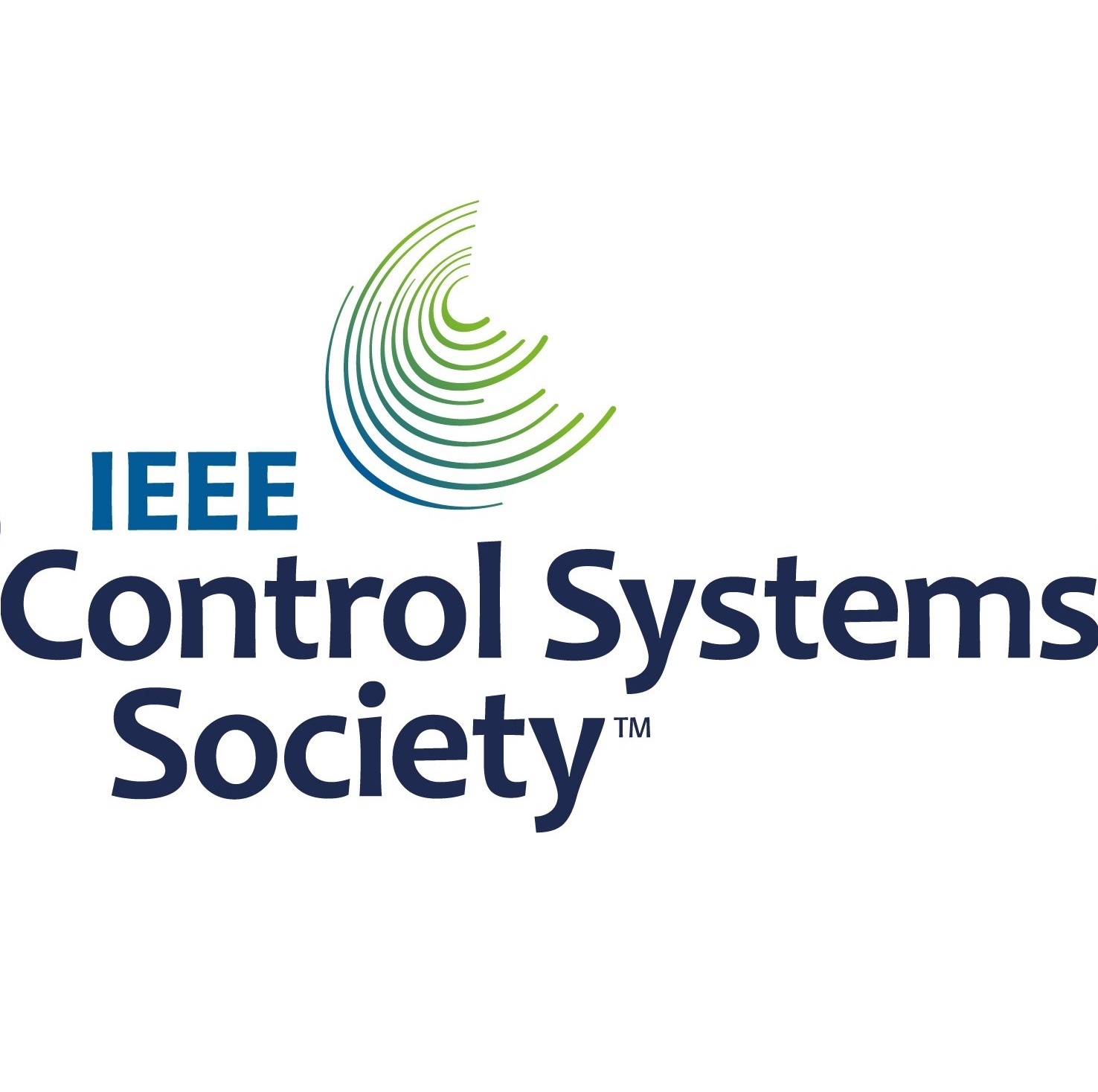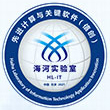Development Forum 1
Multiagent System Formation Control: Theory and Practice Chairs: Weidong Zhang (Shanghai Jiaotong University, China)
Hongli Dong (Northeast Petroleum University, China) |
Panelists: Lihua Xie (Nanyang Technological University, Singapore)
Bin Jiang (Nanjing University of Aeronautics and Astronautics, China)
Haibin Duan (Beihang University, China)
Meiqin Liu (Xi'an Jiaotong University, China)
Haitao Zhang (Huazhong University of Science and Technology, China)
Abstract: Formation control of multi-agent systems is a hot topic in the field of control. The formation control of multi-agent systems refers to the control problem that a team composed of multiple agents maintains a predetermined formation while adapting to environmental constraints when moving towards a specific target. Formation control realizes the group behavior of the entire multi-agent system by means of local interaction among agents, which can be used for multiple agents to solve global tasks. It has broad application prospects in civil, national defense, entertainment and other fields. In this forum, we invited several authoritative experts to introduce the latest research achievements in the field from both theoretical and temporal perspectives, analyze the bottleneck problems faced in this field, and propose future development ideas. This forum will provide an opportunity for interested researchers to have face-to-face communication with authoritative experts.
 Speaker: Lihua Xie, Nanyang Technological University, Singapore
Speaker: Lihua Xie, Nanyang Technological University, Singapore
Title: Integrative Distributed Localization and Formation Maneuvering Control
Abstract: Multi-agent formation has attracted recurring research interests from the control community due to its extensive applications. Most of existing works assume that the positions or relative positions of agents are available. However, there are many applications where GPS may not be available or unreliable. In this talk, we shall present some recent progress on distributed network localization for dynamic networks with relative local measurements such as distance, angle, bearing and ratio of distance measurements, and its integration with formation maneuvering control to empower agents with the capability of responding to environment dynamics by changing the geometric pattern, translation, orientation, and scale of the formation continuously.
Lihua Xie is a professor with School of Electrical and Electronic Engineering, Nanyang Technological University and Director, Center for Advanced Robotics Technology Innovation (CARTIN). He has served as Head of Control and Instrumentation Division and Director of Delta-NTU Corporate Laboratory for Cyber-Physical Systems. His research areas include control engineering, indoor positioning, and unmanned systems. He is currently an Editor-in-Chief of Unmanned Systems and has served as an Editor of IET Book Series on Control and Associate Editor of IEEE Transactions on Automatic Control, Automatica, IEEE Transactions on Control Systems Technology, IEEE Transactions on Control of Network Systems, etc. He was an IEEE Distinguished Lecturer (2011-2014) and an elected member of Board of Governors of IEEE Control System Society (2016-2018). Professor Xie is Fellow of Academy of Engineering Singapore, Fellow of IEEE, Fellow of IFAC, and Fellow of CAA.
 Speaker:Bin Jiang, Nanjing University of Aeronautics and Astronautics, China
Speaker:Bin Jiang, Nanjing University of Aeronautics and Astronautics, China
Title: Fault-Tolerant Control Technology of Multiagent Systems
Abstract: In recent years, with the increasing complexity of unmanned combat environments and the diversification of tasks, the capabilities of a single agent have become unable to meet the requirements for tasks. Based on the research on autonomy and intelligence of biological clusters, the cooperative control of multiagent system has become a research hotspot in engineering and scientific circles. It is a kind of distributed networked system integrating computing, communication, optimization and other technologies, and has been widely used in space exploration, target reconnaissance, cooperative rescue and other fields. Due to the high complexity of the multiagent system, it is very easy to have faults during operation. The distributed topology makes fault information spread through the interactive network, which leads to the deterioration of the entire system performance and affects the stability and security of the multiagent system. Therefore, it is of great significance to study the security and reliability of multiagent system. This report aims at integrating communication technology, fault diagnosis and fault tolerant control theory for homogeneous and heterogeneous multiagent system, focusing on the new achievements of distributed fault-tolerant control technology and its application in actual unmanned formation systems.
Bin Jiang is Professor and Vice President of Nanjing University of Aeronautics and Astronautics, Chair Professor of Cheung Kong Scholar of the Ministry of Education, IEEE Fellow, Fellow of Chinese Association of Automation. He serves as the chairman of the control system branch of IEEE Nanjing Branch, the deputy director of the navigation, guidance and control branch of the Chinese Society of Aeronautics and Astronautics, the deputy director of the Fault Detection, Supervision, and Safety for Technical Processes Professional Committee of the Chinese Association of Automation. He serves as an editorial board member for multiple journals, such as IEEE Trans. on Cybernetics, IEEE Trans. on Neural Network and Learning Systems, IEEE Trans. on Industrial Informatics and Journal of Astronautics, as well as a deputy editor of Guidance, Navigation, and Control. He has been engaged in research on fault diagnosis and fault-tolerant control, as well as their applications in flight control and high-speed rail. He has published 8 academic monographs in Springer and National Defense Industry Press, and more than 80 papers in important domestic and international journals, such as IEEE Transactions., Automatica, AIAA JGCD, and IEEE/CAA Journal of Automatica Sinica. As the first adult, he has won the second prize of the National Natural Science Award, the first prize of the Jiangsu Provincial Science and Technology Award, and the ``Li Ming Talent Award`` of the Chinese Society of Aeronautics and Astronautics.
 Speaker: Haibin Duan, Beihang University, China
Speaker: Haibin Duan, Beihang University, China
Title: Manned/Unmanned Aerial Vehicle Hybrid Intelligent Combat Inspired by Animal Game Behaviors
Abstract: In complex and dynamic mission environments, a single unmanned aerial vehicle (UAV) will suffer from fatal drawbacks, such as the limitation in sensing range, computing capacity, and weapon power. Therefore, the usage of manned/unmanned aerial vehicle hybrid intelligent swarms for mission implementation will be a better choice for the dilemma single unmanned aerial vehicle plunge in, which requires the capacity of precise real-time perception of emergency, autonomous decision making, and mission re-planning.
In this talk, the relation between collective motion in animal behaviors and the hybrid intelligent swarms of manned/unmanned aerial vehicle is explored. Due to the similarity between UAV swarms and animal behaviors in essence, establishing their mapping relation will provide a novel but feasible approach to the fully autonomous manned/ unmanned aerial vehicle hybrid intelligent swarm control. The recent progresses in biologically manned/unmanned aerial vehicle hybrid intelligent swarm will also be highlighted.
Haibin Duan is currently a professor with the School of Automation Science and Electrical Engineering, Beihang University (BUAA), Beijing, China, and the vice director of the State Key Laboratory of Virtual Reality Technology and Systems, BUAA. He is a Fellow of Chinese Association of Automation (CAA).
He received the National Science Fund for Distinguished Young Scholars of China in 2014. He was also enrolled in the Chang Jiang Scholars Program of China in 2018, Scientific and Technological Innovation Leading Talent of “Ten Thousand Plan”-National High Level Talents Special Support Plan in 2017, and Top-Notch Young Talents Program of China in 2012, Program for New Century Excellent Talents in University of China in 2010, and Beijing NOVA Program in 2007.
He is the director of Technical Committee on Guidance Navigation and Control (TCGNC), Chinese Society of Aeronautics and Astronautics (CSAA), and the director of Technical Committee on Unmanned Aerial Systems Autonomous Control (TCUASAC), Chinese Association of Automation (CAA). He is the Editor-in-Chief of Guidance, Navigation and Control, Associate Editor of the IEEE Transactions on Cybernetics, and IEEE Transactions on Circuits and Systems II: Express Briefs. He has authored or coauthored more than 90 publications and 4 monographs. His current research interests are bio-inspired intelligence, and unmanned systems swarm autonomous control.
 Speaker: Meiqin Liu, X i'an Jiaotong University, China
Speaker: Meiqin Liu, X i'an Jiaotong University, China
Title: Cooperative Formation Control of Multiple Unmanned Marine Vehicles
Abstract: The unmanned marine vehicle plays an important role in carrying out various marine missions like sea biological investigation and seafloor mapping. Compared with a single marine vehicle, multiple marine vehicles can bring higher efficiency and improve operational ability when performing tasks. Thus, the cooperative control among multiple marine vehicles has become popular. This report focuses on the cooperative formation control problem for a class of heterogeneous multiple marine vehicles. The recent research progress and control approaches will be introduced. Finally, we will discuss some interesting research topics in the future.
Meiqin Liu, Professor at X i'an Jiaotong University, Yangtze River Scholar Distinguished Professor of the Ministry of Education, Leading Talent in Science and Technology Innovation for Middle-aged and Young People of the Ministry of Science and Technology, and recipient of the National Outstanding Youth Science Foundation Award. She is an expert in the field of equipment development information services and end-system technology, serving as the deputy director of the Cognitive System and Information Processing Professional Committee of the Chinese Association for Artificial Intelligence and the deputy director of the Industrial Vision Professional Committee of the Chinese Association of Automation. Her research interests include artificial intelligence theory and applications, underwater information perception and processing, and multi-sensor information fusion. In the past five years, she has published over 100 papers as the first/communicating author and authored two books published by Science Press. She has led more than 10 national, provincial, and defense projects, including the major project of Science and Technology Innovation 2030 - "New Generation Artificial Intelligence," National Natural Science Foundation key projects, and defense equipment pre-research fund projects. She has been granted over 30 national invention patents. In 2017, she received the Third Young Scientist Award from the Chinese Association of Automation, and in 2019, she was awarded the First Prize of Natural Science Award from the Chinese Association of Automation as the first author.
 Speaker: Haitao Zhang, Huazhong University of Science and Technology, China
Speaker: Haitao Zhang, Huazhong University of Science and Technology, China
Title: Theory, Technology and Application of Autonomous Unmanned Boat Cluster Collaborative Siege
Abstract: From the perspective of application, this paper deeply analyzes the emergence mechanism of natural swarm intelligence for autonomous unmanned vessel cluster collaboration, reveals the rule of cluster configuration switching phase transition, and provides theoretical and technical support for the leap from natural swarm intelligence to the application of unmanned system cluster. Focusing on practical scientific issues such as intention judgment, efficient encirclement, and adversarial games in the theory and technology of autonomous unmanned boat cluster collaborative encirclement, we have innovated the mutation control method of unmanned boat cluster. We have designed a collaborative encirclement controller based on configuration regulation, intermittent communication, simple sensing, and multiple moving targets, breaking through the performance bottleneck of unmanned boat cluster collaborative encirclement in responding to sudden water tasks.
Haitao Zhang, Vice Dean of the School of Artificial Intelligence and Automation at Huazhong University of Science and Technology, Second Level Professor, Doctoral Tutor, Winner of the National Outstanding Youth Fund, Director of the Engineering Center for Autonomous Intelligent Unmanned Systems of the Ministry of Education, and Chief Scientist of the National Science and Technology Innovation 2030 New Generation Artificial Intelligence Major Project. In 2005, he obtained a doctoral degree from the University of Science and Technology of China. In 2007, he engaged in postdoctoral research in Cambridge and was promoted to professor and doctoral supervisor in 2010. Engaged in research in swarm intelligence, unmanned craft cluster collaboration and other fields. Published 124 SCI papers, including 78 Nature Machine Intelligence, Nature Communications, National Science Review, Automatica, and IEEE journals. The theoretical achievements have been reported by Nature Physics as a research highlight, and the application achievements have been transformed in China Shipbuilding Heavy Industry Corporation and Guangzhou Shipbuilding International, supporting the construction of major national marine projects such as the Greater Bay Area Cross Sea Channel and offshore wind farms, as well as the exploration of oil and gas resources in the South China Sea. They have been reported on the official websites of the State Council and the Ministry of National Defense. Ranked first and won two first prizes in Hubei Province's Natural Science Award and one first prize in Guangdong Province's Technological Invention Award.

















